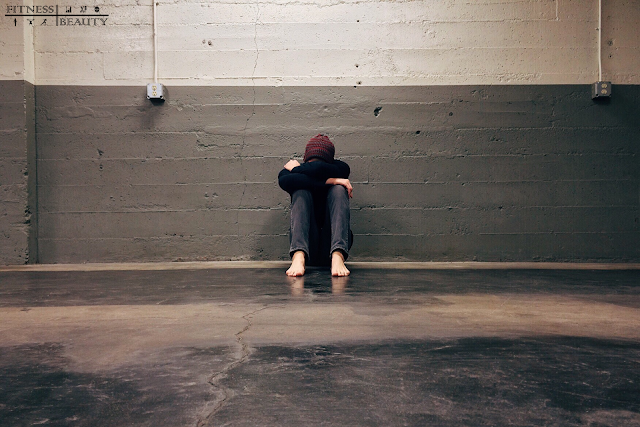Treatment of Depression
Treatment of Depression
What is Depression? Depression is a common mental health disorder that can affect anyone, regardless of age, gender, or background. It’s indicated by constant feelings of hopelessness, sadness and lack of interest in different activities.
The causes of depression are not fully understood, but they are thought to be related to a combination of genetic, environmental, and psychological factors. Treatment for the depression usually involves various combinations of therapies, medication and treatments.
How To Treat Depression
Cognitive Behavioral Therapy (CBT) is a type of therapy that helps individuals change negative thinking patterns and behavior. It is one of the most effective treatments for depression.
Antidepressant medications: such as selective serotonin reuptake inhibitors (SSRIs), serotonin and norepinephrine reuptake inhibitors (SNRIs), and tricyclic antidepressants (TCAs), can also be effective in treating depression.
Electroconvulsive therapy (ECT) is another treatment option for depression, particularly in cases where medication and therapy have not been effective.
Mindfulness-based therapies, such as mindfulness-based cognitive therapy (MBCT) and acceptance and commitment therapy (ACT) can also be effective in treating depression.
Lifestyle changes, such as regular exercise, a healthy diet, and getting enough sleep, can also help improve symptoms of depression.
Treatment of Depression By Cognitive Behavioral Therapy (CBT)
Cognitive Behavioral Therapy (CBT) is a type of talk therapy that focuses on the relationship between an individual’s thoughts, emotions, and behaviors. It is one of the most widely used and effective treatments for depression. CBT helps individuals identify and change negative patterns of thinking and behavior that may be contributing to their depression.
The basic principles of CBT for depression include:
- Identifying Negative Thoughts And Beliefs: CBT helps individuals identify negative thoughts and beliefs that may be contributing to their depression, such as thoughts of self-blame or hopelessness.
- Challenging Negative Thoughts And Beliefs: Once negative thoughts and beliefs are identified, CBT helps individuals challenge them by questioning the evidence for and against them and considering alternative, more balanced perspectives.
- Changing Negative Thoughts And Beliefs: CBT helps individuals change negative thoughts and beliefs by replacing them with more balanced and positive thoughts and beliefs.
- Changing Behavior: CBT helps individuals change behavior by setting small, achievable goals and working towards them. This can include increasing physical activity, engaging in pleasurable activities, and improving sleep habits.
- Relapse Prevention: CBT also focuses on helping individuals develop strategies for preventing relapse, such as identifying and managing triggers for depression and developing coping skills for dealing with difficult situations.
CBT for depression is typically delivered in weekly sessions, with each session lasting between 30 and 60 minutes. The number of sessions required can vary depending on the severity of the depression and the individual’s response to treatment. Some people may require as few as 8-10 sessions, while others may require more.
It’s important to work with a qualified mental health professional, such as a psychologist or licensed therapist, who has training and experience in CBT. They can help you to identify your negative thoughts, beliefs and behaviours, as well as to challenge and change them.
It’s also important to note that CBT should be used in conjunction with other treatments, such as medication, as appropriate. It’s important to work with a mental health professional to develop an individualized treatment plan that is right for you.
Treatment of Depression With Antidepressant Medications:
Antidepressant medications are a common treatment option for depression. They are designed to help balance certain chemicals in the brain, called neurotransmitters, which are thought to play a role in regulating mood. Different types of antidepressants work in different ways, but they all aim to improve the symptoms of depression by changing the levels of certain neurotransmitters in the brain.
There are several different classes of antidepressant medications, each with their own unique mechanism of action, including:
- Selective Serotonin Reuptake Inhibitors (SSRIs): These medications, such as fluoxetine (Prozac), sertraline (Zoloft), and paroxetine (Paxil), work by increasing the levels of the neurotransmitter serotonin in the brain.
- Serotonin And Norepinephrine Reuptake Inhibitors (SNRIs): These medications, such as venlafaxine (Effexor) and duloxetine (Cymbalta), work by increasing the levels of both serotonin and norepinephrine in the brain.
- Tricyclic Antidepressants (TCAs): These medications, such as amitriptyline and imipramine, work by increasing the levels of both serotonin and norepinephrine in the brain, but they also affect other neurotransmitters and have more side-effects.
- Atypical Antidepressants: These medications, such as bupropion (Wellbutrin) and mirtazapine (Remeron), have a unique mechanism of action and may work differently for different individuals.
- Monoamine Oxidase Inhibitors (MAOIs): These medications, such as phenelzine and tranylcypromine are not as commonly prescribed as the above medications, due to the risk of dangerous interactions with certain foods and medications.
It’s important to note that the effectiveness of antidepressant medication can vary from person to person and it may take some time for the medication to take effect. It is important to work with a qualified mental health professional, such as a psychiatrist, to determine the best medication and dosage for you.
It’s also important to be aware of the possible side effects of the medication and to report any side effects to your doctor. Common side effects of antidepressants include nausea, headache, insomnia, and sexual dysfunction.
It’s important to continue taking the medication as prescribed, even if you start to feel better, as stopping the medication too soon can cause the symptoms to return. It is also important to be aware that it can take several weeks or even months for the medication to reach maximum effectiveness, and it’s important to be patient with the process.
It’s also important to remember that antidepressant medication should be used in conjunction with other treatments, such as therapy, as appropriate. A combination of therapy and medication has more positive results than either treatment alone.
Treatment of Depression With Electroconvulsive therapy (ECT)
Electroconvulsive therapy (ECT) is a treatment option for severe depression that has not responded to other treatments, such as medication and therapy. ECT involves passing a small electrical current through the brain to induce a seizure. It is thought to work by changing the levels of certain neurotransmitters in the brain, which can improve symptoms of depression.
ECT is typically administered in a hospital or clinic setting, under the supervision of a qualified mental health professional, such as a psychiatrist. The patient is put under general anesthesia and given a muscle relaxant to prevent injury during the seizure. The procedure takes about 10-15 minutes, and the patient typically wakes up within 30 minutes.
ECT is usually administered on an outpatient basis, but it may require hospitalization for severe cases. A course of ECT typically includes 6-12 treatments, administered two or three times a week. The number of treatments needed can vary depending on the individual’s response to treatment.
The side effects of ECT can include confusion, memory loss, and headache, but these are usually temporary. Some people may experience longer-term memory problems, but these are usually mild and affect only a small number of people.
ECT has been found to be effective in treating severe depression that has not responded to other treatments. It can also be used to treat other mental health conditions, such as bipolar disorder and schizophrenia.
It’s important to note that ECT should only be considered as a treatment option for severe depression that has not responded to other treatments, as it carries some risks and side effects.
Treatment of Depression By Mindfulness Based Therapies
Mindfulness-based therapies, such as mindfulness-based cognitive therapy (MBCT) and acceptance and commitment therapy (ACT), are a type of psychological treatment that incorporates mindfulness practices, such as meditation and yoga, to help individuals manage their symptoms of depression.
MBCT is based on the idea that depression is often caused by negative thought patterns, such as rumination, and that mindfulness can help individuals break free from these patterns. The therapy involves learning mindfulness techniques, such as mindful breathing and body scan, and applying them to daily life. MBCT also includes cognitive therapy techniques, such as cognitive restructuring, which helps individuals challenge and change negative thoughts.
ACT, on the other hand, focuses on helping individuals accept their thoughts, feelings, and experiences without judgment, and to commit to taking action to improve their lives. The therapy uses mindfulness techniques, such as acceptance and defusion, to help individuals develop a sense of perspective on their thoughts and emotions and to build psychological flexibility.
Both MBCT and ACT are typically delivered in group or individual therapy sessions, and they often involve homework and daily practices to help individuals integrate the techniques into their daily lives. A course of therapy typically includes 8-12 sessions, but it can vary depending on the individual’s needs. Research has shown that mindfulness-based therapies can be effective in treating depression, and they can also help to prevent relapse. They may be particularly useful for individuals who have experienced multiple episodes of depression, as they can help to change the thought patterns and behaviors that contribute to depression.
It’s important to work with a qualified mental health professional, such as a psychologist or licensed therapist, who has training and experience in mindfulness-based therapies to get the best results.
It is also important to be patient with the treatment process and remember that it may take some time to see improvement. It’s also important to continue treatment, even if you start to feel better, as stopping treatment too soon can cause the symptoms to return.
Treatment of Depression By Lifestyle Changes
- Exercise: Regular exercise has been shown to be as effective as medication in treating mild to moderate depression. Exercise can help to release endorphins, which are chemicals in the brain that can improve mood, as well as decrease stress and anxiety. Aim for 30 minutes of exercise like cycling, swimming or brisk walking, at least 5 days a week.
- Diet: Eating a healthy diet can also help to improve symptoms of depression. A diet rich in fruits, vegetables, and lean protein can provide the essential nutrients that the brain needs to function properly. Avoiding processed foods and added sugars can also help to improve mood.
- Sleep: Getting enough sleep can also help to improve symptoms of depression. Aim for 8 hours of sleep every night. And try to maintain a good sleep schedule. Avoiding caffeine and electronics before bedtime can also help to improve sleep quality.
- Social Support: Having a strong support system can also help to improve symptoms of depression. Spend time with friends and family, and consider joining a support group for individuals with depression.
- Relaxation Techniques: Relaxation techniques, such as yoga, meditation, and deep breathing, can also help to reduce stress and improve mood.
- Avoiding Alcohol And Drugs: Alcohol and drugs can worsen depression symptoms and interfere with the effectiveness of other treatments. It’s important to avoid or limit alcohol and drug use.
Points To Be Noted
- It’s important to work with a qualified mental health professional, such as a psychiatrist, psychologist, or therapist, to determine the best treatment plan for you.
- It’s also important to have a good support system in place, such as family and friends, to help you through the treatment process.
- It’s important to be patient with the treatment process, as it may take some time to find the right treatment or combination of treatments that work for you.
- It’s important to continue treatment, even if you start to feel better, as stopping treatment too soon can cause the symptoms to return.
- It’s also important to be aware of the possible side effects of medication and to report any side effects to your doctor.
- Relapse can happen, and it’s important to be aware of the warning signs and to seek help if you experience a relapse.
- Treatment for depression is not a one-time event, but rather, a lifelong process to manage symptoms and maintain overall well-being.


.jpg)
